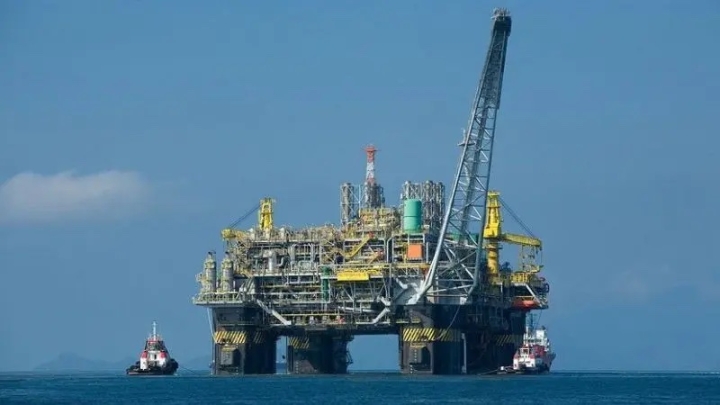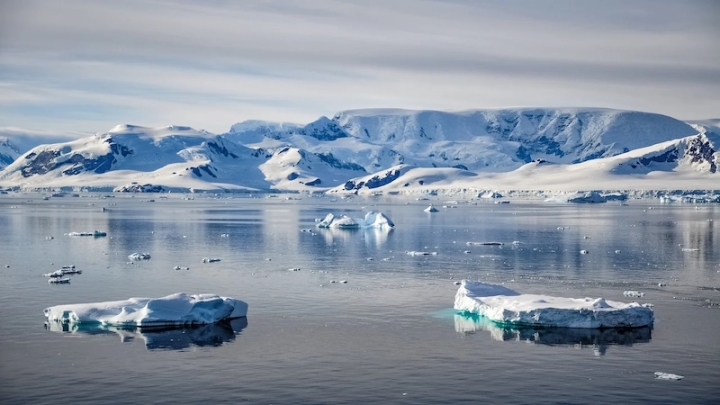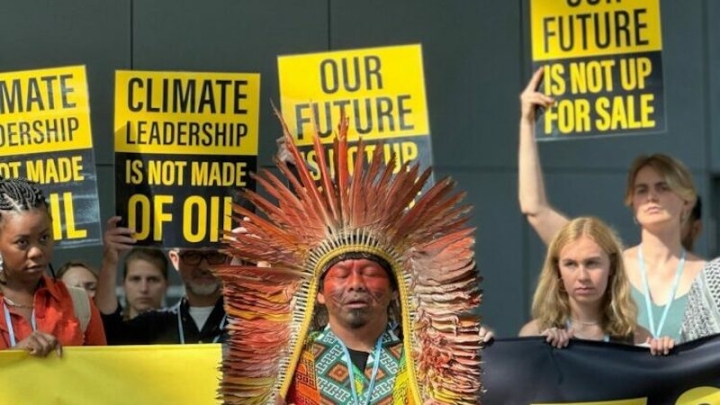
By Rafael Cardoso
The auction held Tuesday (Jun. 17) by the Brazilian oil authority ANP ended with 34 oil exploration blocks awarded in the basins of Parecis, Foz do Amazonas, Santos, and Pelotas—an area of 28,359.55 km². In total, 172 areas were put up for auction.


Nine winning companies—two Brazilian, seven international—paid over BRL 989 million to acquire the blocks. The minimum investment forecast for the exploration phase is BRL 1.45 billion. Petrobras acquired ten blocks in the Foz do Amazonas basin and three blocks in the Pelotas basin, with an outlay of BRL 139 million.
ANP acting Director-General Patricia Baran highlighted the results obtained in the Equatorial Margin—the Amazon river delta, a region that encompasses the Foz do Amazonas Basin and four other basins (Potiguar, Ceará, Barreirinhas, and Pará-Maranhão).
“We had a premium of nearly 3 thousand percent in areas of the Equatorial Margin and competition in seven of the 19 blocks awarded. This was the first time that areas in this region were offered under the permanent bidding modality,” said Baran. “In the agency’s view, today’s result was really positive, and showed investors’ confidence in Brazil’s exploration potential,” she added.
Minister of Mines and Energy Alexandre Silveira said the inclusion of areas in the Equatorial Margin, the Parecis basin, and the Pelotas basin is part of a strategy for a more balanced distribution of revenue from the oil and gas sector.
“We are fully capable of taking the wealth from oil very responsibly to all regions of Brazil. We are working to ensure that economic growth is accompanied by social inclusion, environmental commitment, and the creation of quality jobs across the country,” he stated.
Protests
Indigenous leaders from the Tapayuna people of Mato Grosso state held a demonstration outside the Courtyard Hotel in Rio de Janeiro, where the auction took place. Young leader Yaiku Tapayuna described the auction as an attack on traditional peoples.
“It’s an impact on our territory. We indigenous peoples are against it because it’s a sacred place. We don’t want this exploitation within our territory,” he said.
Quilombola association CONAQ, formed by members of communities originally created by runaway enslaved people, issued a statement condemning the auction of block 59, off the coast of Amapá state, close to quilombola territories.
“We denounce the lack of dialog as well as the authorities’ resistance to listening to the quilombola people and the other people who inhabit the impacted regions. This institutional negligence is the result of environmental and structural racism, as it puts rural black communities and their territories at risk, favoring economic interests and big corporations,” their note reads.
Fishing workers and members of the Arayara Institute held a protest in Rio de Janeiro’s Guanabara Bay. They held up a banner that read: “Stop the Doomsday Auction,” because they believe that oil exploration threatens the climate as well as communities. The group argued that, in the year of COP 30 in Brazil, the government should stop what they classify as a major environmental risk.
Conservation specialist and WWF-Brasil energy transition leader Ricardo Fujii said that the authorities and oil companies are ignoring scientific warnings and socio-environmental risks.
“We are talking about one of the most sensitive regions on the planet, home to unique ecosystems such as the great Amazonian reef system and more than 80 percent of Brazil’s mangrove swamps—cradles of fishing, food security, and the livelihoods of thousands of families. Instead of leading the energy transition, Petrobras is choosing to expand a high-impact portfolio with uncertain yields, putting both Brazil’s and the planet’s climate future at risk,” Fujii declared.

